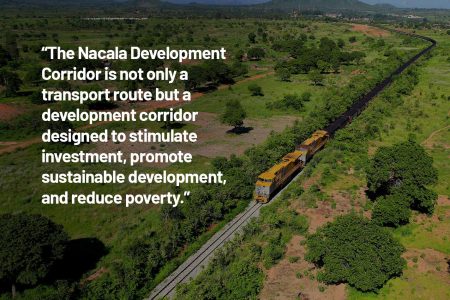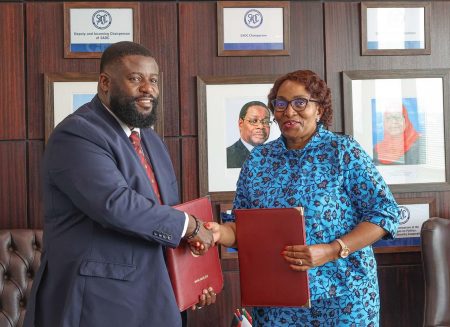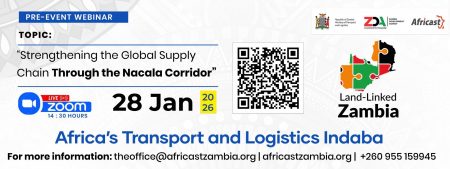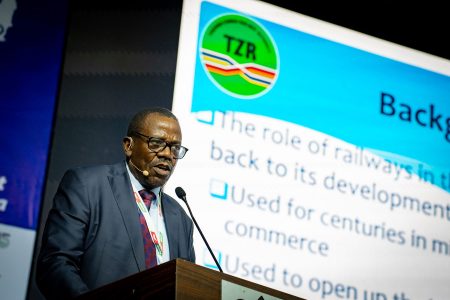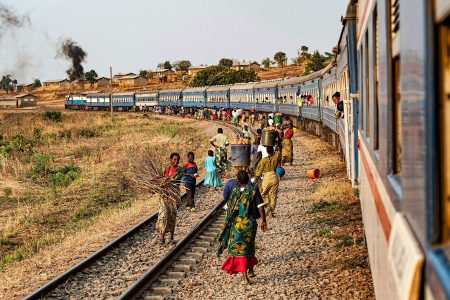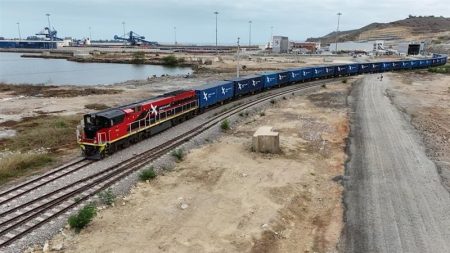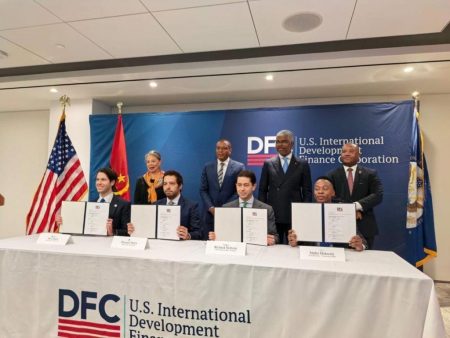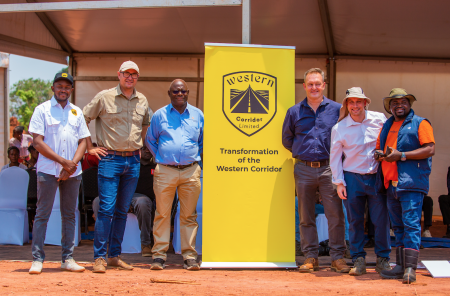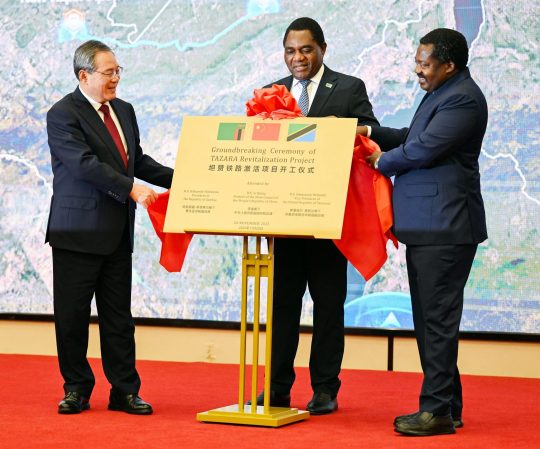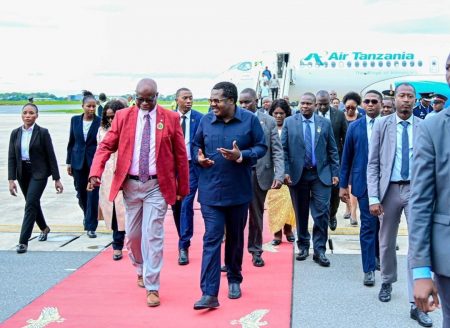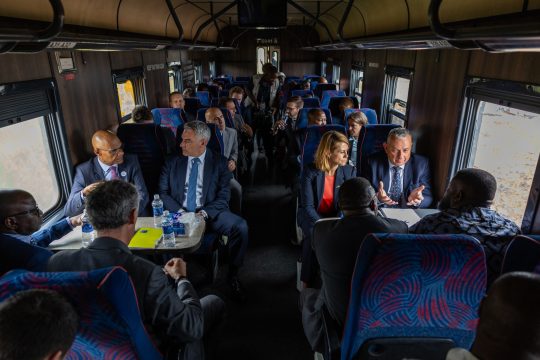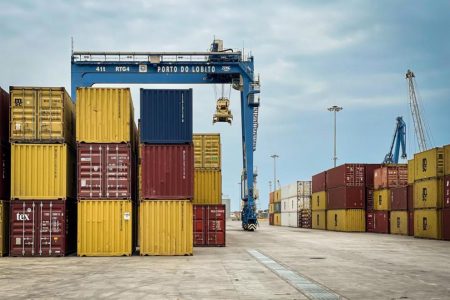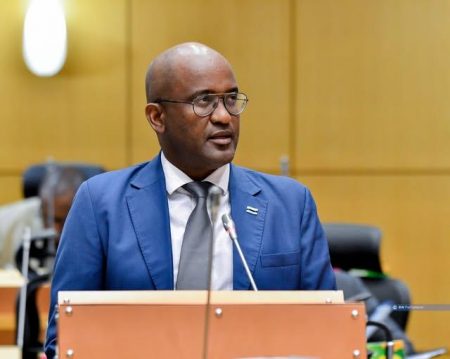This content is for Premium Subscribers only. To view this content, login below or subscribe as a Premium Subscriber.
Related News Articles
Cargo Train Derailment in Mazabuka
13 February 2026
SADC, Zambia
1 min
Zambia Reaffirms Commitment to Nacala Corridor Development
05 February 2026
SADC, Zambia
1 min
Zambia, DRC and Angola Align to Accelerate Lobito Corridor Implementation
05 February 2026
SADC, Zambia
2 min
Zambia Signs Key Regional Corridor Agreements at SADC Secretariat
30 January 2026
SADC, Zambia
3 min
Land Linked Zambia Webinar: Strengthening the Global Supply Chain through Nacala Corridor
23 January 2026
SADC, Zambia
1 min
Zambia Railways and TAZARA Record Losses Amid High Costs
23 January 2026
SADC, Zambia
1 min
1 min
Lobito Atlantic Railway Secures USD753 Million to Accelerate Development in Angola
18 December 2025
SADC, Zambia
1 min
Zambia’s Mutanda–Kaoma Road Project Set to Transform Mining and Agricultural Trade
12 December 2025
SADC, Zambia
2 min
Dangote Cement Zambia Sees Opportunity in NRZ Clinker Transport
12 December 2025
SADC, Zimbabwe
1 min
TAZARA Revitalisation Launch Highlights Enduring Zambia, Tanzania and China Partnership
21 November 2025
SADC, Zambia
2 min
EU Boosts Zambia’s Rail Revival with €50 Million Investment
14 November 2025
SADC, Zambia
2 min
EU Expands Engagement in the Lobito Corridor under Global Gateway Initiative
14 November 2025
SADC, Zambia
2 min
Botswana Unveils Plans to Modernise Infrastructure and Expand Rail Connectivity
02 November 2025
SADC, Zambia
2 min
Zambia Railways Would Require Seven Years to Construct New Railway Line
24 October 2025
SADC, Zambia
2 min
SPV to Manage TAZARA’s Freight Operations
18 October 2025
SADC, Zambia
3 min

